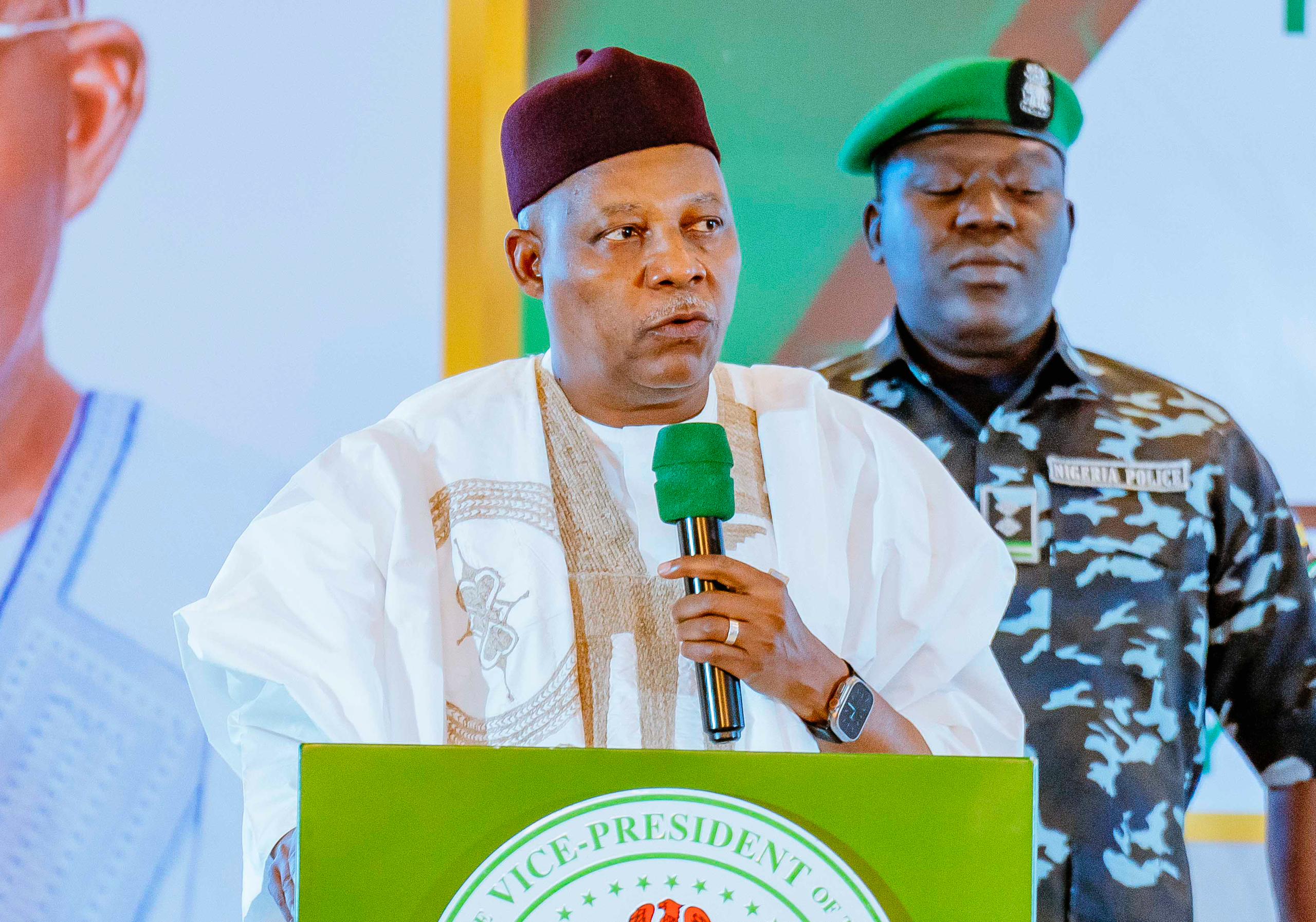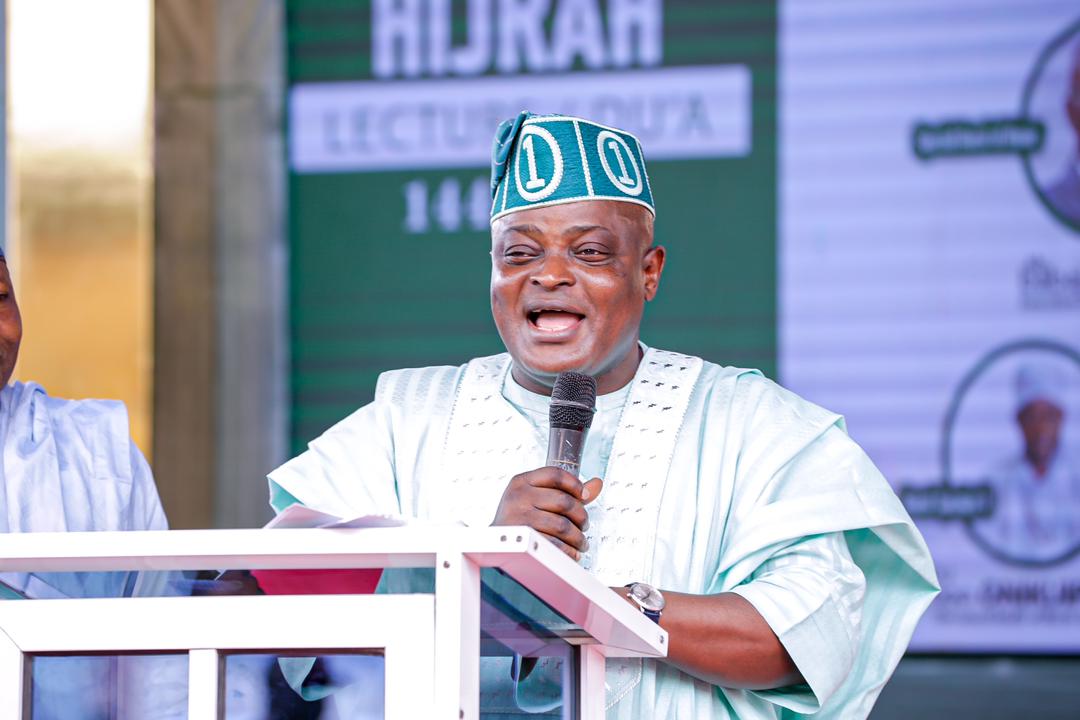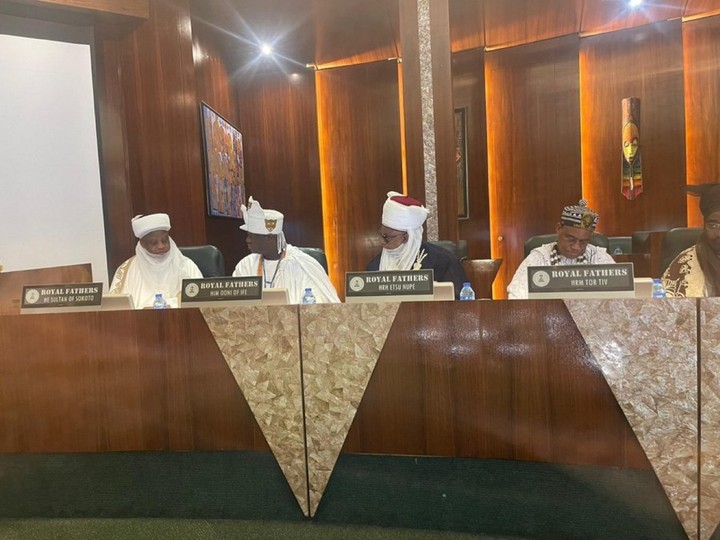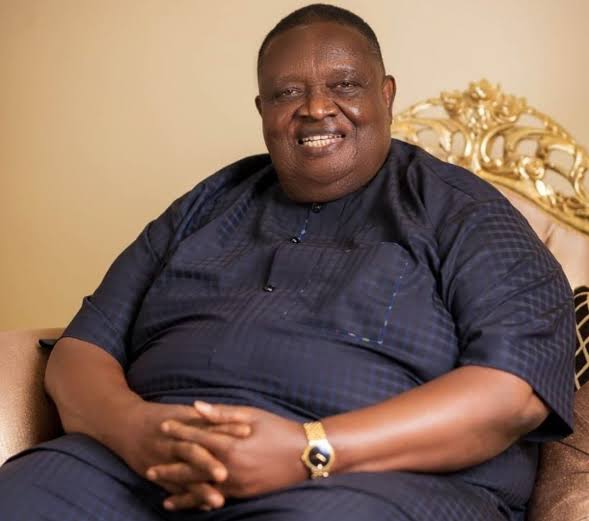National Philanthropic Office Will Be A Huge Success Under Tinubu – VP Shettima
Inaugurates NPO local implementation committee
Women to get 50% of $200m grants for MSME start-ups
Sahara Weekly Reports That The Vice President, Senator Kashim Shettima, has assured that the success and positive impact of the newly established National Philanthropic Office (NPO) is guaranteed under the Tinubu administration.

According to him, President Bola Ahmed Tinubu has been a firm believer in giving back to society and as such, his enduring spirit of bettering the lot of the citizens is enough guarantee for the NPO to make a huge success and impact.
Senator Shettima stated this on Friday during the inauguration of the Local Implementation Committee of the National Philanthropic Office (NPO) at the Banquet Hall of the Presidential Villa, Abuja.

The NPO, an initiative driven 100 percent by the private sector, with full support from the government, is part of efforts by the Tinubu-led federal government to raise alternative funding for Small and Medium-Sized Enterprises (SMSEs) and other vital economic programmes through collaboration with the private sector.
The office is saddled with the responsibility of ensuring the establishment of 12 industrial value-chain hubs and accelerators for startups and small businesses across the six geopolitical zones in Nigeria.

Delivering his speech titled, “Philanthropy and Our Shared Responsibilities,” during the inauguration of the Local Implementation Committee of the NPO, Vice President Shettima disclosed that the NPO is set to raise $200 million in grants and non-financial investment through local and international teams to provide support for start-ups in key sectors of the country’s MSMEs space.

“Distinguished ladies and gentlemen, this initiative proposes to raise $200m in grants and non-financial investment, through local and international teams, to provide support to start-ups in the key sectors within the MSMEs space that drive job creation in Nigeria,” he stated.
Noting President Tinubu’s knack for giving back to society, Shettima said his boss’s commitment to philanthropy had always been the mark of his identity.
“Long before stepping into the realm of public service, His Excellency President Bola Ahmed Tinubu has been a steadfast believer in the ideals of giving back to society. This commitment to philanthropy has always defined his identity.
“The Country Chairperson of the National Philanthropic Office (NPO), Mrs. Thelma Ekiyor, can rest assured that this initiative is in secure hands. Mr. President’s enduring spirit of societal betterment is enough to guarantee its success and impact,” the VP stated.
He acknowledged what he called gaps existing in philanthropy, saying “there’s an unmistakable inadequacy of philanthropy,” even as he added that this “has led to the establishment of the National Philanthropic Office.
“Through this office, we aim to kindle a spirit of support for vulnerable enterprises and ideas that hold the key to our collective progress,” he explained, noting that there is no place in the world “where government thrives in isolation, and without collaboration with private individuals and organizations bound by the virtue of empathy, this practice of philanthropy”.
Shedding more light on the operations of the NPO, the VP said, “While the NPO is 100% driven by the private sector, enjoying government support, it thrives on the reality that worldwide, governments are increasingly exploring alternative funding methods for vital projects and economic sectors through collaboration with the private sector.
“The objective is to create twelve industrial value-chain hubs and accelerators nationwide. This will focus on digitized shared workspaces, agro-processing, and shared industries. The overarching aim is to generate one million jobs directly and indirectly within the MSME ecosystem.
“Additionally, eligible MSMEs will receive grants ranging from 5 million to 10 million. Emphasis will be placed on supporting women-led businesses, constituting 50% of the start-ups.”
While inaugurating the Local Implementation Committee of the NPO, the Vice President implored members of the committee to do their job with a collective vision.
On his part, Delta State Governor Sheriff Oborevwori, who spoke on behalf of Governors of the 36 states of the federation, said the initiative would be most beneficial to businesses and individuals across the states, expressing the delight of his colleagues and pledging their support.
In his remarks, the Minister of Budget and Economic Planning, represented by Permanent Secretary in the Ministry, Mr Nebolisa Anako, commended the Vice President for the initiative, and the private sector partners for their commitment, noting that it aligns with the goals of the Tinubu administration.
For her part, Minister of Industry, Trade and Investment, Dr Doris Uzoka-Aniete, commended all the partners and stakeholders who she said worked towards actualising the first National Philanthropy Office, noting that it will go a long way in impacting lives, livelihoods and the general economy.
On her part, the Country Chairperson of the NPO, Ms Thelma Ekiyor-Solanke, said Philanthropy and Impact Investing are two important avenues of supporting MSMEs that can encourage innovation and provide catalytic capital to entrepreneurs.
She noted and commended the Vice President’s visionary commitment to the initiative, saying it will transform philanthropy and impact the country’s investing landscape.
She disclosed that among other programmes, the office will support the establishment of 12 shared office spaces for StartUps across the six geopolitical zones.
Members of the Local Implementation Committee chaired by Ms Thelma Ekiyor-Solanke include the Managing Director of Wema Bank, Mr Moruf Oseni; Managing Director, Bank of Industry, Mr Olasupo Olusi; Managing Director of Access Bank, Mr Roosevelt Ogbonna; Chairman, Impact Investors Foundation, Mr Afolabi Oladele, and Founder, Sambo Foundation,HRH, Samuel Sambo.
Others are Managing Director, BUA Foundation, Mr Ubon Udoh; Executive Secretary of Nigerian Content Development and Monitoring Board, Mr Felix Ogbe; CEO of Brownvalley Partners, Mr Terlumun Ikya, and Mrs Ayodele Olojede from Wema Bank, while Mr Temitola Adekunle-Johnson will serve as Secretary of the committee.
Stanley Nkwocha
Senior Special Assistant to The President on Media & Communications
(Office of The Vice President)
12th January, 2024

 Business6 months ago
Business6 months ago
 Business6 months ago
Business6 months ago
 celebrity radar - gossips6 months ago
celebrity radar - gossips6 months ago
 celebrity radar - gossips6 months ago
celebrity radar - gossips6 months ago


















